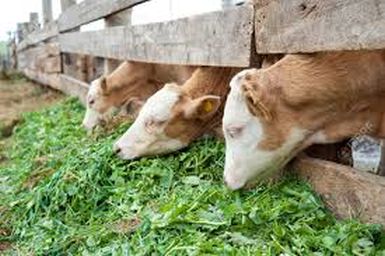- HOME
- INTRO TO THE FORUM
- USE AND MISUSE
- BADLY WRITTEN, BADLY SPOKEN
- GETTING
TO KNOW ENGLISH - PREPARING FOR ENGLISH PROFICIENCY TESTS
- GOING DEEPER INTO ENGLISH
- YOU ASKED ME THIS QUESTION
- ADVOCACIES
- EDUCATION AND TEACHING FORUM
- ADVICE AND DISSENT
- MY MEDIA ENGLISH WATCH
- STUDENTS' SOUNDING BOARD
- LANGUAGE HUMOR AT ITS FINEST
- THE LOUNGE
- NOTABLE WORKS BY OUR VERY OWN
- ESSAYS BY JOSE CARILLO
- Long Noun Forms Make Sentences Exasperatingly Difficult To Grasp
- Good Conversationalists Phrase Their Tag Questions With Finesse
- The Pronoun “None” Can Mean Either “Not One” Or “Not Any”
- A Rather Curious State Of Affairs In The Grammar Of “Do”-Questions
- Why I Consistently Use The Serial Comma
- Misuse Of “Lie” And “Lay” Punctures Many Writers’ Command Of English
- ABOUT JOSE CARILLO
- READINGS ABOUT LANGUAGE
- TIME OUT FROM ENGLISH GRAMMAR
- NEWS AND COMMENTARY
- BOOKSHOP
- ARCHIVES
Click here to recommend us!
MY MEDIA ENGLISH WATCH
If you are a new user, click here to
read the Overview to this section
Team up with me in My Media English Watch!
I am inviting Forum members to team up with me in doing My Media English Watch. This way, we can further widen this Forum’s dragnet for bad or questionable English usage in both the print media and broadcast media, thus giving more teeth to our campaign to encourage them to continuously improve their English. All you need to do is pinpoint every serious English misuse you encounter while reading your favorite newspaper or viewing your favorite network or cable TV programs. Just tell me about the English misuse and I will do a grammar critique of it.
Read the guidelines and house rules for joining My Media English Watch!
Two exceptionally instructive cases of bad English in media
I would like to share with Forum readers two exceptionally instructive cases of bad English in Philippine newspapers that I had critiqued in My Media English Watch sometime ago. So as not to needlessly upset the dramatis personae, reporters, and media outlets where the offenses to the language had been committed, I have disguised the particulars of the reportage the best way I could.


(Top photo) ROADSIDE CARNIVAL AFTER ACCIDENT
(Bottom photo) SUCCESSFUL OVERSEAS FEMALE WORKERS
The first case is this head-scratcher of a lead sentence about a tragic accident in a roadside carnival ride:
“The man whom employees have been pinpointing as the owner of a carnival in V. City where one died and nine others were injured in a freak accident involving a ride in the facility cannot be held criminally liable after all.”
I’m sure that like me when I first read that sentence, you must be finding it exceedingly difficult to grasp what’s being reported about. Indeed, if you’re still scratching your head up to now, it’s because the subject of that sentence (“the man”) and its operative verb (“cannot be held liable”) are parted by a monster relative clause of no less than 32 words—“whom employees have been pinpointing as the owner of a carnival in V. City where one died and nine others were injured in a freak accident involving a ride in the facility.”
With that yawning chasm between subject and verb, even the most attentive and focused reader could lose track of the grammatical and semantic connection between them. Sentence comprehension problems of this sort can arise when the subject of a sentence needs to be qualified at some length for the statement to be understood in context, sometimes to the point of seriously muddling its syntax and rendering the sentence almost beyond comprehension.
The sentence in this case is admittedly a tough nut to crack. In fact, only after so many unsuccessful mental tries was I finally able to figure out a way of doing it right—to start off the sentence with the expletive “there”:
“There is no way, after all, to attribute criminal liability to the man pinpointed as the owner of a V. City carnival ride that figured in a freak accident last November 9 in which one died and nine others were injured.”
As you can see, the fix to such an intractable sentence construction is to bring the subject and verb within arm’s reach of each other, and in this case the much-maligned anticipatory “there” can be depended upon to take the lead in mounting a rescue.
Now for the second case, here’s a news service dispatch that, either from sheer cluelessness about English idioms or from ill-disguised spite, came up with this lead sentence about one of the recipients of awards for outstanding overseas Filipino workers or OFW:
“Marina K. left the Philippines to seek for greener pastures abroad. She found one, and now shares the fodder with her countrymen.”
The idiomatic expression “to seek greener pastures,” despite its strong literal correlation with animal feed, is perfectly acceptable to describe someone’s search for a better life or a more promising situation. But to say that the subject OFW in the story found one such greener pasture and “now shares the fodder with her countrymen” borders on the ludicrous.

CATTLE EATING FODDER: A SERIOUS CASE OF WRONG METHAPOR
The word “fodder” literally means something fed to domestic animals, especially coarse food for cattle, horses, or sheep; figuratively, it means inferior or readily available material used to supply a heavy demand, as in “gossip is fodder for tabloids” or “soldiers are used as cannon fodder during wartime.”
Here’s how I was able to elevate the language of that statement from the animal level to the human plane:
“Marina K. left the Philippines to seek greener pastures abroad. She found one, and now shares her good fortune with her countrymen.”
This essay first appeared in the column “English Plain and Simple” by Jose A. Carillo in the August 14, 2015 issue of The Manila Times, © 2015 by the Manila Times Publishing Corp. All rights reserved.
Click to post a comment or read comments
View the complete list of postings in this section
(requires registration to view & post)


